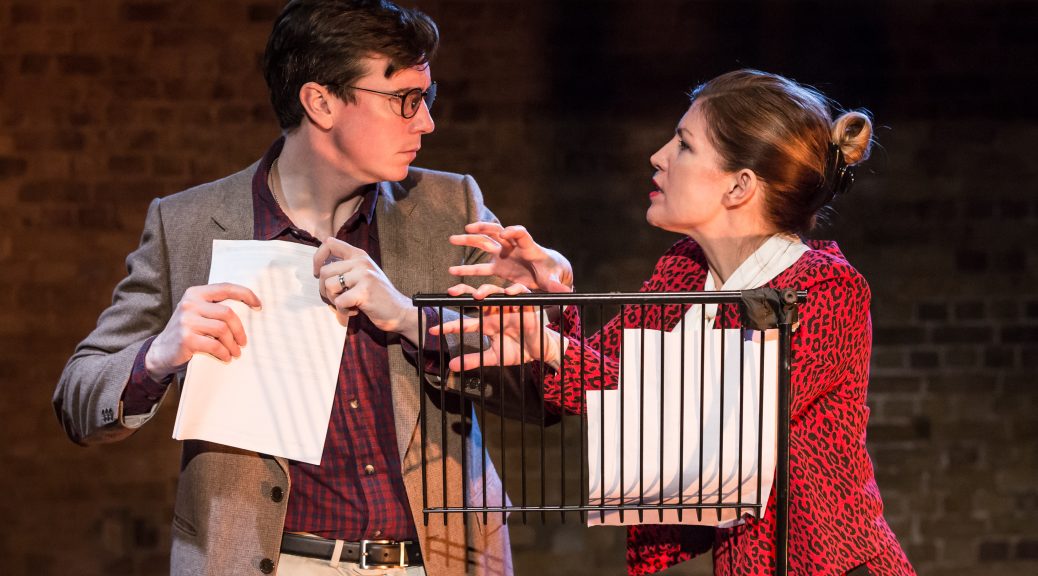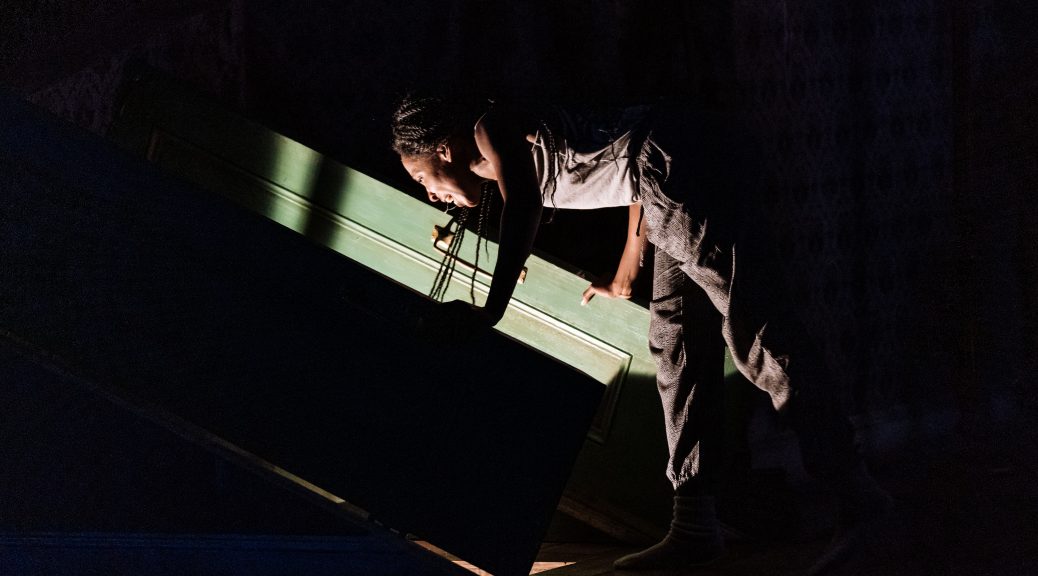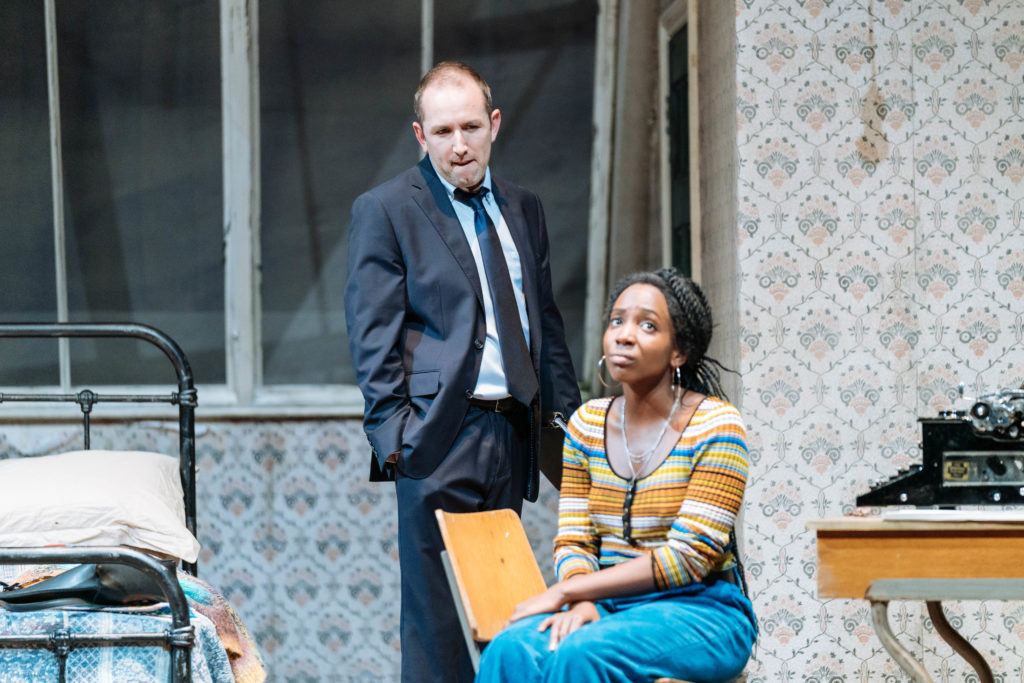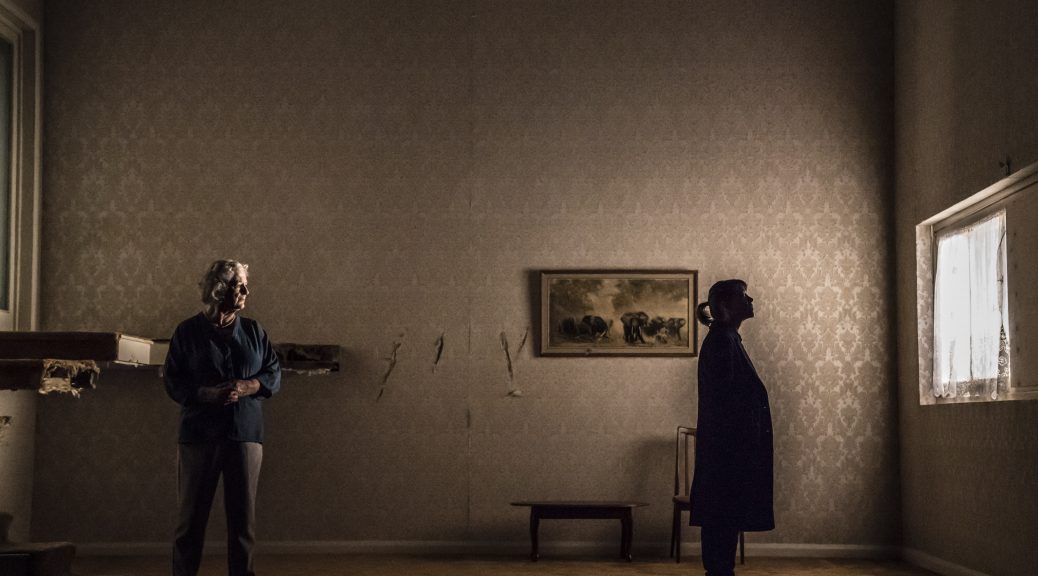You might want some quiet time after Annie Jenkins’ new play. That it creates a need to pause for thought is the first recommendation for this high quality show. A modest story of two troubled women, whose relationship is disrupted when one starts an affair with a colleague, Jenkins aims for a fresh look at family and offers insight into safety, security and love.
The bizarre bond between housemates Cynthia and the older Maud is both disquieting and reassuring – a powerful observation on intense affection. The younger is an agoraphobic insomniac and the other a former victim of domestic abuse with an alcohol problem, so you’d expect the play to be grim. But the couple have moments of blissful abandon, with their “songs and stories” containing “glitter and sparkle”, as they perform Shirley Bassey songs and eat chicken nuggets. They’ve been happy in their isolated world. Yet as Maud begins her affair with Dennis, who we learn has his own demons, a sense of threat grows.
The trio of characters benefit from sterling depictions by the talented cast. Caroline Faber and James Doherty play the middle aged couple to perfection in their awkward courting scenes. Faber’s work alongside Cynthia is just as strong; a mix of maternal exasperation and tenderness with a touch of fear. As Cynthia, Alice Sykes gives a phenomenally committed performance establishing the complex vulnerability of the role from the start, always maintaining intrigue; the glimpse of her applying lipstick through her tears is tremendously powerful.
For all the praise that the performers deserve, the characters never quite convince. The dialogue feels contrived, not just the stories told but the obsession with facts that reflects a search for stability. There is a literary feel to the play that shows unquestionable promise on Jenkins part but is also studied. Situations are both banal and extraordinary so there’s a conflict between motivations that aren’t entirely credible yet a show that works overall. The biggest accolade should go to director Alice Hamilton whose work ensures the production’s success. Using a revolving stage and plenty of incidental music, the play is paced bravely showing confidence and giving the audience time to absorb. The atmosphere Hamilton creates perfectly complements the play. With a manic final scene the tempo escalates thereby increasing the shock of events and leaving the piece’s culminating cry for help as a forlorn moment of theatrical potency.
Until 27 January 2019
Photo by Ali Wright









